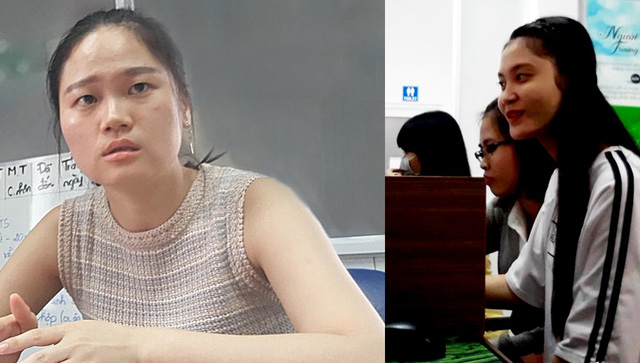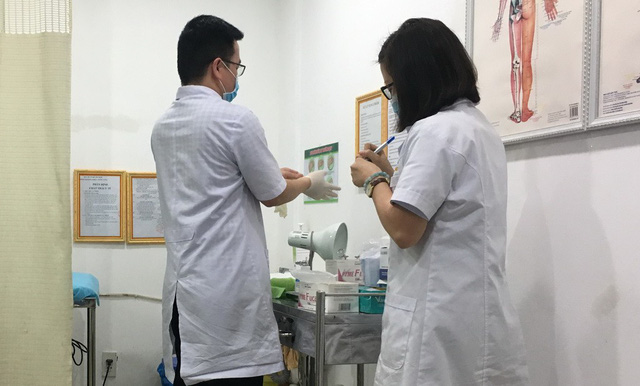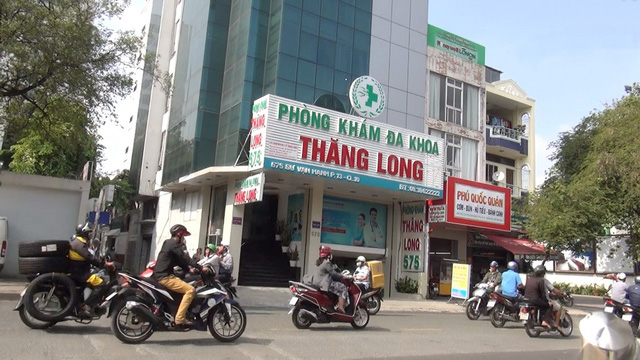Residents across Ho Chi Minh City continue to be scammed by Chinese-owned clinics despite widespread reports from victims detailing their experiences with misrepresented diagnoses and fraudulent practices.
Thanks to the development of social media in Vietnam, most deceitful Chinese-run infirmaries use a team of online consultants to lure in potential victims.
Though the consultants rarely have medical training, they’re typically charged with one key task: convincing patients to come to the clinics.
Tuoi Tre (Youth) newspaper’s undercover reporters managed to gain behind-the-scenes access to the inner workings of one of these clinics.
“We have to show patients that we are willing to help. They need to believe we are professional and dedicated doctors with competent expertise. On the other hand, we try not to seem too enthusiastic in order to avoid suspicion,” a consultant instructor told her students during a training lesson at the Thang Long polyclinic in District 10.
Participants will be given an examination following the course and those who pass will be permitted to work at the clinic.
The clinic’s advising team includes about 50 ‘consultants’ aged 20 to 25 who work from the top two floors of company’s eight-story building.
The team works around the clock in three 8-hour shifts, talking with clients through the official website and social media networks such as Facebook, Zalo, and Viber.
Advisers at the clinic, despite lacking sufficient medical knowledge, claim to be doctors with extreme concern for the well-being of their patients.
Kim, a manager at Thang Long polyclinic, shared that the facility primarily treats patients with gynecological and urological diseases.
Even a certified doctor cannot make a good adviser, Kim shared, adding that regardless of medical background all consultants must undergo proper training.
Meanwhile, the Nguyen Trai polyclinic in District 1 uses its own training facility in District 5 to ensure their team of consultants is fit for the job.
The clinics employees, as with the Thang Long Polyclinic, don’t need to have a medical background to be hired for the job, the center’s Chinese manager shared. Instead, they need the ability to work in a high-pressure environment.
Those who can handle the workload can earn anywhere from VND8 million (US$352.4) to VND10 million ($440.5 per month, he added.
Ngyuen Trai Clinic’s employees are each trained to handle one specific disease at a time, becoming ‘experts’ in each before moving on to the next.
 |
| Left: Kim, the manager of the Thang Long polyclinic. Right: The facilitiy’s online consultants. Photo: Tuoi Tre |
Exaggeration
Most advisers are specifically instructed to refrain from specifically diagnosing their patients, according to each clinics managers.
Vague explanations are a key tool for these consultants.
“Your symptoms appear similar to warts. However, we’ll need to give you a full examination in order to provide an accurate diagnosis. I recommend coming into the clinic immediately in case the disease is contagious,” was the example on trainer gave of dialogue a consultant might share with a potential patient.
Any pushback from the patient is met with warnings that the condition could persist and create serious complications if the client refuses treatment at the clinic.
Although these facilities are in dire need of customers, consultants are instructed to boast about how busy their clinicians are in order to create a sense of urgency for the patients.
For questions regarding treatment costs, advisors offer similarly vague responses with promises of discounted and affordable fees.
On November 20, An, a consultant at Thang Long polyclinic, was talking with a patient from the Central Highlands province of Gia Lai who was worried about the potential health ramifications of a previous sexual affair.
“You may suffer prostatitis and have a high chance of cancer and infertility,” An said, before mentioning additional horrifying complications.
Meanwhile, Kieu, another ‘expert’ at the facility, was consulting with another client, who reported a skin infection after a trip to a massage parlor.
Kieu asserted the patient could have warts, adding that more serious sexual diseases are also possible.
The consultant then mentioned a series of viruses and other complications, including cancer, that could have infected the patient.
She successfully convinced the patient to undergo treatment at the polyclinic after only a two hour conversation.
 |
| Doctors at the Thang Long polyclinic. Photo: Tuoi Tre |
Solutions?
Once patients finally arrive at these Chinese-owned centers, they are told to undergo unnecessary and costly examinations.
Doctors then give inaccurate diagnosis that require expensive treatments.
Following previous reports from victims, the Ho Chi Minh City Department of Health convened a working session with 17 Chinese-owned clinics in the city.
However, most facilities only sent employees, rather than management, to the meeting.
The health department required the clinics list their prices and medical specilaites on their official websites.
They were also asked to be accurate and transparent in patients’ diagnosis and medical records.
Personal phone numbers of doctors in charge must also be publicized on the websites.
Like us on Facebook or follow us on Twitter to get the latest news about Vietnam!






















































